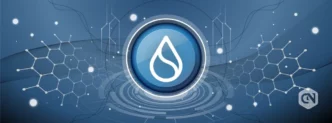Solana has currently dominated the market in terms of the most cost-effective minting pricing for non-fungible tokens. Compare it to Ethereum, and the difference reflects that while the cost is still on the lower side, State Compression further brings it down. To explain briefly, state compression is a way to store data on-chain and cut the cost by a huge margin.
Minting 1 million NFTs on Solana costs approximately $253,680. With state compression in practice, the same cost is estimated to come down to $113.10. These numbers are based on the value of SOL as of April 5, 2023, when the token was valued at $21.41 each.
Polygon looks rather good for minting a thousand NFTs since the cost for the same comes to around $33. However, a higher number of NFTs brings its own problems, and Polygon begins to fall short in the number of advantages it can offer. Minting a million NFTs comes to $32,832.16.
State Compression is already live on some projects in Solana. Teams from Dialect and Crossmint have started sharing the benefits, while Helium, DRiP, and Wordcel are in the process of experiencing how it works.
Dialect is leveraging the capabilities of State Compression to cover the minting cost of NFT stickers. The benefit is ultimately being passed on to over a thousand users in the ecosystem. Dialect is a messaging service that is based on the technology of blockchain.
Advertisement
Crossmint uniquely expresses the use case of State Compression by creating integrations that boost customer loyalty toward the companies. Crossmint is an NFT and API tooling company.
Overall, the use of State Compression is primarily done to bring scalability and an enhanced user experience to Solana.
The utility of State Compression is currently limited to NFTs; however, it can later expand to store data of any sort. It has been built by the developers of Metaplex and Solana Labs and is widely supported by Triton, Helius, Phantom, SimpleHash, the Solana Foundation, and Solflare.
Users leveraging State Compression avail themselves of the benefits through Merkle trees, a data structure that allows the storage of a small bit of data on-chain while updating the same directly to the Solana Ledger. Merkle Trees assists State Compression to cut down on costs without compromising security and decentralization of the base layer of Solana.
The community has welcomed the move with a positive response to State Compression. Assure DeFi, pioneers of KYC and NFTs in decentralized finance, has called this great news, adding that they are loving this development.
Advertisement
Solana is a blockchain that has been built to accelerate mass adoption. It is mainly characterized by the speed with which it executes transactions, composability, and staking a green stand with its operations.







